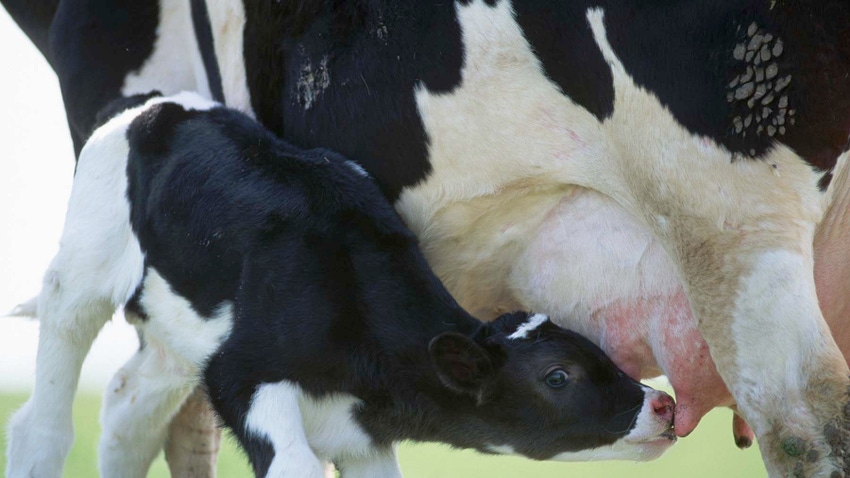
USDA’s Animal and Plant Health Inspection Service is issuing a federal order to combat the growing threat of H5N1 avian influenza. It includes new reporting and testing requirements for dairy cattle intended to limit further spread of highly pathogenic avian influenza, commonly known as HPAI.
Beginning Monday, April 29, all dairy cattle will be required to have a negative HPAI test from an approved National Animal Health Laboratory Network facility before being transported across state lines. Herd owners with cattle testing positive will be required to provide epidemiologic information, including animal movement tracing.
Dairy cattle moving across state lines must also adhere to other conditions set forth by the Animal and Plant Health Inspection Service.
APHIS is expected to soon issue additional guidelines specifying new requirements for lactating dairy cattle. USDA will issue requirements for other classes of dairy cattle based on “scientific factors” concerning the virus and its evolving risk profile.
The new federal order also requires laboratories and states veterinarians to report all positive HPAI tests to APHIS.
Agriculture Secretary Tom Vilsack says his agency has been working with the FDA and the Centers for Disease Control, as well as state and local officials, to determine the best course of action.
“This has been, and continues to be, a very complex circumstance and an evolving issue, and an effort to try to respond in a way that I think protects the health of the American people,” he says.
According to Vilsack, USDA has identified cases where avian influenza has been transmitted between cattle within the same herd as well as from cows to poultry. On April 16, APHIS microbiologists found an H5N1 sample from a Kansas cow that showed a shift in the virus. That could indicate it has an adaptation to mammals. Despite this, Vilsack says no significant changes to the virus have been found that would make it more transmissible to humans,”
“Cases among humans in direct contact with animals are possible,” he says. “Our partners at the U.S. Center for Disease Control believe that the current risk to the public remains low.”
Vilsack says that this latest round of avian influenza poses “a bit of a new risk” because it can and has affected both dairy cattle and poultry. He says the new testing requirements will help USDA better understand the disease and limit its spread.
So far, the mortality rate among affected cattle remains low, with most animals recovering with supportive care.
USDA and FDA say milk supply is safe
FDA officials reported this week that some milk samples have shown traces of HPAI. Vilsack says the key point to remember is that pasteurization kills the virus. While samples may still show traces of virus, it poses no risks to humans.
When asked directly if he had any concerns about personally consuming dairy products, Vilsack said he’d added cream to his morning coffee without hesitation and ate a grilled cheese sandwich for lunch.
Farmers have already been working with USDA officials to isolate symptomatic animals and destroy any milk from them. The fact that trace amount of HPAI have been found in the milk supply is evidence the disease is now present in asymptomatic dairy cattle.
On Tuesday, FDA issued a release reiterating the safety of pasteurized milk. FDA officials say the pasteurization process destroys harmful pathogenic bacteria and other microorganisms, including highly pathogenic avian influenza. They add that FDA’s data is consistent with many other studies showing milk pasteurization “will readily inactivate” HPAI. Viral fragments detected after pasteurization are nothing more than evidence that the virus is dead.
About the Author(s)
You May Also Like






